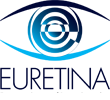Regeneron Pharmaceuticals, Inc. (NASDAQ: REGN) have announced that aflibercept (injection 8 mg) met the primary endpoint for the treatment of patients with macular oedema following retinal vein occlusion (RVO), including those with central, branch and hemi-retinal vein occlusions. Previously, the European Commission had granted marketing authorization in the European Union (EU) for aflibercept 8mg for the treatment of nAMD and visual impairment due to diabetic macular edema (DME).
In the recent “QUASAR” trial, patients treated with aflibercept (8mg) every 8 weeks (after initial monthly doses) experienced non-inferior vision gains compared to those treated with the approved monthly dosing regimen of aflibercept (2 mg). These data are now to be submitted to regulatory authorities in the first quarter of 2025.
Outcomes at 36 weeks presented summary data for aflibercept (8mg) for n=591:
*Non-inferiority (1-sided) p-values are for the difference in least squares mean compared to EYLEA with margin of 4 letters. EYLEA HD groups met non-inferiority.
According to the company, QUASAR was a global, double-masked, active-controlled Phase 3 trial evaluating the efficacy and safety of EYLEA HD (aflibercept, 8mg), compared to EYLEA (aflibercept, 2mg), in patients with RVO. EYLEA HD patients were treated with an 8-week dosing regimen (after 3 or 5 initial monthly doses), and EYLEA patients were treated every 4 weeks. The primary endpoint was met at 36 weeks, with both groups of EYLEA HD patients achieving non-inferior visual acuity gains compared to those receiving EYLEA. Summary results of the study were consistent with “the known safety profile of EYLEA HD in its pivotal trials. Ocular treatment emergent adverse events (TEAEs) occurring in ≥5% of all EYLEA HD patients included increased ocular pressure (5%), and there was one case each of endophthalmitis and retinal vasculitis. The rate of intraocular inflammation was 0.5% for EYLEA HD and 1.3% for EYLEA. Hypertension at baseline was present in 66% of EYLEA HD patients and 62% of EYLEA patients. Hypertension during the trial was reported in 8.1% of EYLEA HD patients and 4.7% of EYLEA patients. Thromboembolic events (APTC) occurred in 0.5% of EYLEA HD patients and 1.7% of EYLEA patients”.
Commenting on a press release, George D. Yancopoulos, M.D., Ph.D., and Chief Scientific Officer at Regeneron, stated, “with these pivotal results in retinal vein occlusion, EYLEA HD with extended dosing has again met the high bar of vision gains and safety seen with standard-of-care EYLEA. EYLEA HD has already made a significant impact on the treatment of its three approved indications – wet age-related macular degeneration, diabetic macular edema and diabetic retinopathy – and now has the potential to substantially reduce the treatment burden for patients with retinal vein occlusion.” In addition, Seenu M. Hariprasad, M.D., Chair of the Department of Ophthalmology and Visual Science, The University of Chicago also stated that, “all currently FDA-approved anti-VEGF therapies for retinal vein occlusion require monthly dosing, which can be burdensome for a patient. These impressive data from QUASAR demonstrated that EYLEA HD patients with retinal vein occlusion experienced improved vision with fewer injections than EYLEA – which could offer a significant advancement in this treatment setting. Furthermore, about 90% of EYLEA HD patients were able to maintain 8-week dosing intervals through 36 weeks.”

